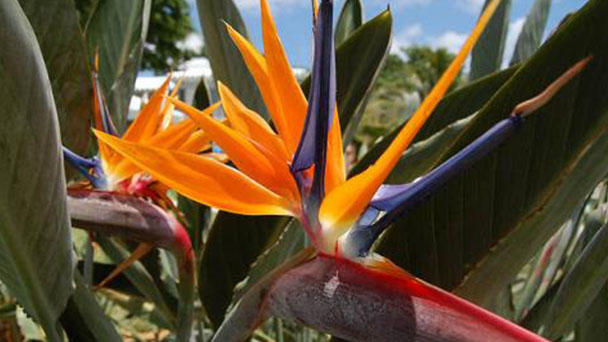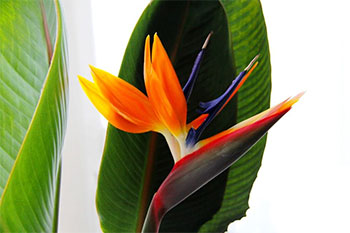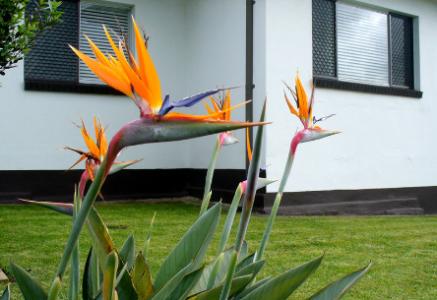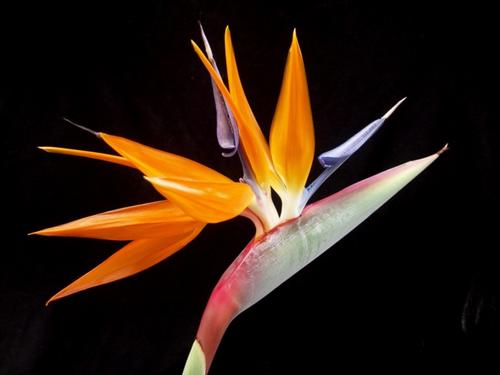How to Care for Bird of Paradise Plant Leaves Curling & Drooping
Written by Maggie
May 12 2022

The bird of paradise is a wonderful plant that has high ornamental value after flowering. The bird of paradise not only has high ornamental value, but also has a wide range of effects and functions. Therefore, more and more people are starting to grow birds of paradise. But how to care for birds of paradise leaves curling or drooping? Here are some bird of paradise care guides for you.

Bird of Paradise care guides for leaves curling
The curling of the leaves of Bird of Paradise plant may be caused by excessive illumination, unsuitable environment, excessive watering or soil deterioration. At this time, corresponding measures should be taken according to different situations. When the light is too strong, shade the plants appropriately. Improve the environment when it is not; If overwatering, stop watering; Change the soil in time when it deteriorates. Read More: Why Bird of Paradise Plant Leaves Curling and How to Fix It?
The following are details of Bird of Paradise care guides for leaves curling.
1. Light
Bird of Paradise, also known as Strelitzia stellata, belongs to the traveler's coke family plant and is often planted as a bonsai. When planted, the leaf of Bird of Paradise curls up, which may be caused by excessive illumination. At this time it is best to transplant the plant to the indoor half shade, ventilated environment maintenance, during the appropriate shading to the plant, in order to prevent the plant from being sunburned.
2. Environment
The curling of the Bird of paradise leaves may also be caused by environmental discomfort. At this time, it is best to transplant the plants to a warm and ventilated environment for maintenance. If conditions permit, it is best to control the temperature at about 25 degrees, not higher than 30 degrees but lower than 10 degrees, too high or too low temperature is not conducive to plant growth.
3. Watering care
Bird of Paradise is native to southern Africa. It is suitable for growing in a warm and humid environment and has a high demand for water. However, excessive watering during cultivation will cause the leaves of the plant to curl up. At this time to stop watering, and in time the excess water in the soil discharged, such as soil dry plant leaves will return to normal.
4. Soil care
The growth rate of Bird of Paradise is fast, so the soil of the plant should be changed once every two years during cultivation. If the soil is not changed in time, the leaves of the plant will curl up, so the soil should be changed in time. Bird of Paradise likes to grow in loose and fertile sandy loam. The replacement soil can be mixed with leaf rot soil, garden soil, river sand and perlite.

Bird of paradise is one of the best trees for pots
Bird of Paradise care guides for leaves drooping and softening
The drooping and softening of the leaves and rhizome of Bird of Paradise may be caused by excessive watering, environmental discomfort, insufficient light or soil deterioration. At this time, corresponding measures should be taken according to different situations. Over Watering needs to stop watering; The environment needs to be improved when it is not good; Light needs to be increased when light is insufficient; The soil needs to be replaced when it deteriorates. The following are details of Bird of Paradise care guides for leaves drooping and softening.
1. Watering care
Bird of Paradise is often planted in flower beds. When planting, the leaves and roots of Bird of Paradise sag and become soft, usually caused by excessive watering. At this time to stop watering, and timely discharge the excess water in the soil, after breeding to control the amount of watering, try not to leave water.
2. Environment
Bird of Paradise is native to southern Africa. It likes to grow in a warm and humid environment. If the plant is placed in a stuffy and dry environment for a long time during cultivation, the root and stem of the plant will sag and become soft. At this time, the plants should be transplanted to a suitable environment for cultivation, and the process of cultivation should ensure good air circulation.
3. Enough light
Bird of Paradise is a long-day plant with a high demand for light. If the plant receives insufficient light during its growth, it will also lead to drooping leaves and roots and become soft. When growing Bird of Paradise, it is best to place the plants in a ventilated and well-lit environment, and let the plants receive no less than 4 ~ 6 hours of light every day.
4. Soil care
Bird of Paradise leaves and roots sag and become soft may also be caused by soil deterioration. At this time, the soil should be replaced in time for cultivation. Bird of Paradise likes to grow in loose, fertile and sandy loam soil with good drainage. The replacement of the soil can be leaf rot soil, garden soil, river sand, perlite mixed preparation, in the process of changing the soil to start light.

Bird of Paradise - one of the best indoor trees
Read Next:
Best 15 Indoor Plants for Low Light 2021
Latest Updated
- Benefits of Bugleweed - 7 Science-backed Health Benefits
- Bugleweed Dangers & Side Effects - Is It Poisonous?
- How to Plant Evergreen Trees - What You Should Know
- When to Plant Evergreens - Grow Guide for Evergreen Trees
- 12 Wonderful Evergreen Shrubs for Your Garden
- 12 Popular Evergreen Plants with Pictures for Beginners
- When And How To Prune A Lilac Bush Like a Pro
- How to Grow & Care for Lilac Vine (Hardenbergia Violacea)
- Japanese Lilac Tree (Syringa Reticulata) Care & Propagation Guide
- Shumard Oak Pros and Cons - What to Know
Popular Articles
- Winter maintenance of Antirrhinum Majus
- How to Grow Terminalia Mantaly Tree
- How to Grow and Care for Crossostephium Chinense
- How to grow Antirrhinum Majus in spring
- Peristeria Elata (Dove Orchid) Profile: Info & Care Guide
- Underwatered Snake Plant (Sansevieria Trifasciata) - Signs And How To Fix
- How to Care for Brazilian Jasmine Plant (Mandevilla Sanderi)
- How to Grow & Care for Graptopetalum Purple Delight in Summer
- Rosa Chinensis (China Rose): Plant Growing & Care Tips
- How to Care for Baby Sun Rose (Aptenia Cordifolia)